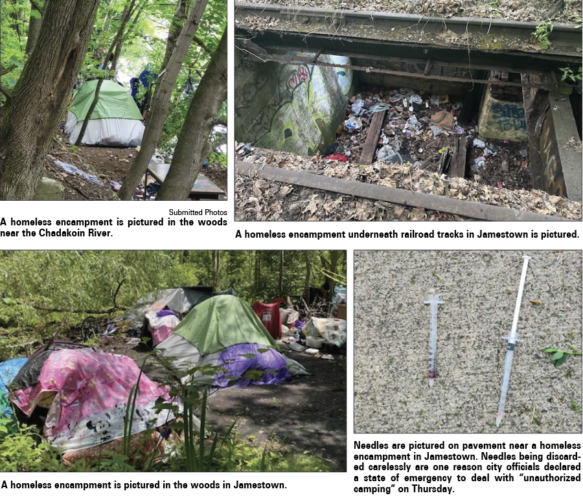JAMESTOWN — One of the areas Jamestown officials are seeking more state support is mental health treatment beds.
According to city officials, there is only one mental health evaluation facility in Chautauqua County. The facility is located in Jamestown but serves residents throughout the county as well as Cattaraugus and Erie counties. City officials said in a news release late Thursday afternoon that many people remain in Jamestown after being evaluated and have no means to return home. This is one of the reasons why Jamestown’s homeless numbers have increased over the past two years.
“The City has been actively promoting the establishment of mental health assessment centers across Western New York to more effectively address this issue and provide critical support to those in need.” city officials said. “The City of Jamestown is working with UPMC Chautauqua to ask the Governor to evaluate the need for an additional 939 facility in Western New York or a neighboring county.”
The 939 facility refers to Section 939 of the state Mental Hygiene Law, which allows for the involuntary confinement of individuals who are mentally ill and deemed a danger to themselves or others. City officials say people are often transferred to Jamestown under Section 939, as well as Sections 941 and 945 of the state Mental Hygiene Law. UPMC Chautauqua sometimes has as many as 100 transferees from across Western New York.
City officials say UPMC Chautauqua is overwhelmed with capacity, and people receiving treatment are too often being discharged without proper follow-up care or the means to return to where they came from.
“This practice leaves them stranded in Jamestown, often without the support they need to reintegrate back into society or address their mental health needs.” city officials said. “As a result, many people are joining the growing camp population, further straining City resources and complicating crisis management efforts. This situation not only increases the burden on the City, but it also limits our ability to provide the critical care and treatment these people urgently need. Lack of hospital capacity and mental health professionals underscores the urgent need for additional mental health assessment centers and resources to support UPMC Chautauqua and meet the growing demands of our community.”
City officials are also asking the state for funding for crisis stabilization centers, which have been delayed for the past two years. Crisis stabilization centers (CSCs) are specialized facilities that provide immediate short-term intervention and stabilization for individuals experiencing a mental health crisis. The goal of the centers is to create a safe, supportive environment where individuals can receive emergency treatment, be assessed, and stabilize before moving on to longer-term treatment or returning to the community.
In 2022, New York State enacted comprehensive legislation to establish and fund crisis stabilization centers as part of a broader mental health crisis intervention strategy. The bill was intended to address the growing demand for accessible mental health crisis care and support organizations such as Recovery Options Made Easy (ROME), which allocated funds to establish crisis stabilization centers in their communities. However, additional funding was delayed by Governor Kathy Hockle, resulting in the Governor’s expansion of crisis stabilization centers stalling and stalling implementation of the 2022 law.
“The delay in funding for Crisis Stabilization Centers directly hinders the efforts of the City, hospitals and other organizations working to address this crisis. Without adequate Crisis Stabilization Centers, individuals with serious mental illnesses will not receive immediate and effective intervention and their situation will worsen. As a result, many will remain in encampments where their situation becomes even more unstable and they become more vulnerable. The lack of timely crisis intervention not only exacerbates the crisis, it also hinders efforts to provide basic mental health assistance and help individuals transition into stable housing and care. This funding delay not only undermines basic mental health services but also impacts broader efforts to alleviate homelessness in our city.”


